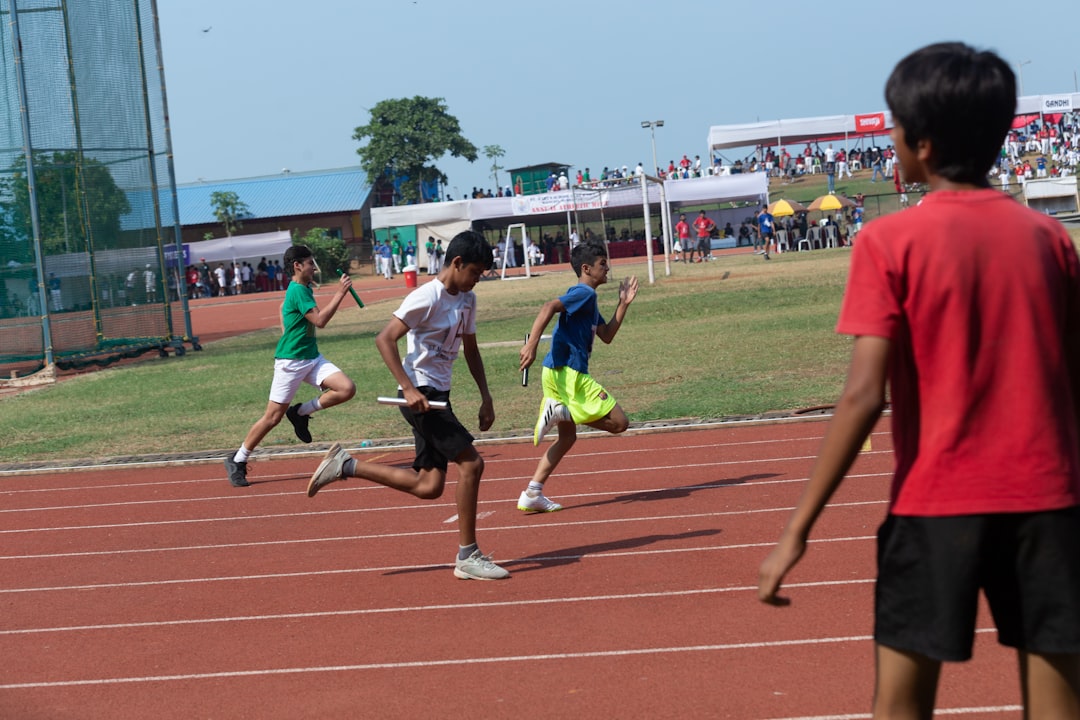Sports are more than just games; they are a profound reflection of a nation’s history, values, and collective spirit. From ancient martial arts to modern team competitions, the sports a country embraces often tell a compelling story about its people and their identity. Understanding these national pastimes offers a unique lens into global cultures.
This comprehensive guide will take you on a fascinating journey across continents, exploring the official and de facto national sports that captivate millions. You’ll discover how these games shape national pride, foster community, and even influence international relations. Prepare to delve into the heart of global sporting traditions and uncover the passions that unite and define nations.
The Essence of a National Sport
What exactly qualifies a sport as “national”? It’s a designation that can arise from various factors, including historical significance, widespread popularity, legislative decree, or deep cultural integration. While some nations formally declare a national sport, others have a de facto sport that is universally recognized and celebrated by their citizens.
These sports often embody characteristics valued by the nation, such as teamwork, individual prowess, strategic thinking, or resilience. They become symbols of national identity, celebrated during major tournaments and woven into the fabric of everyday life.
Official vs. De Facto National Sports
It’s crucial to distinguish between sports officially recognized by law and those that are simply the most popular or culturally significant. For instance, while baseball is widely considered the national sport of the United States, it has never been officially declared as such by Congress. Conversely, Canada officially recognizes both ice hockey and lacrosse as its national sports.
Global Giants: Football (Soccer) and Its Reign

Football, known as soccer in North America, is undeniably the world’s most popular sport, boasting an estimated 3.5 billion fans globally. Its simplicity, accessibility, and thrilling nature have made it a national obsession in countless countries across every continent. For many nations, football is not just a game; it’s a religion.
The FIFA World Cup, held every four years, is the most-watched sporting event on the planet, uniting billions in a shared passion. This global phenomenon transcends cultural and linguistic barriers, creating a universal language of competition and camaraderie.
Nations Defined by the Beautiful Game
Many countries have football as their undisputed national sport, often with a rich history of success and iconic players. Here are a few prominent examples:
- Brazil: With five World Cup titles, Brazil’s identity is inextricably linked to football. The “Jogo Bonito” (Beautiful Game) philosophy originated here, emphasizing flair, skill, and joy.
- Germany: A powerhouse in international football, Germany’s national team is a source of immense pride. The Bundesliga, their top professional league, is one of the most attended in the world.
- Argentina: Home to legends like Diego Maradona and Lionel Messi, Argentina’s passion for football is legendary. Matches are often described as a matter of national honor.
- France: The French national team, “Les Bleus,” has achieved significant international success, including two World Cup victories, cementing football’s place at the heart of French culture.
Commonwealth Connections: Cricket and Rugby

Beyond football, two other team sports hold significant national importance, particularly within Commonwealth nations: cricket and rugby. These games, originating from England, have spread across former British colonies, becoming deeply embedded in their respective cultures.
The Gentleman’s Game: Cricket
Cricket is a bat-and-ball game played between two teams of eleven players. While its origins are English, its global stronghold lies in the Indian subcontinent, Australia, and the Caribbean. For many, it’s more than just a sport; it’s a way of life, particularly in India.
- India: Although India has no official national sport, cricket is overwhelmingly the most popular and culturally significant. The Indian Premier League (IPL) is one of the wealthiest sports leagues in the world.
- Australia: Cricket is one of Australia’s most popular summer sports, with the Ashes series against England being a highlight of the sporting calendar.
- England: The birthplace of cricket, it remains a cherished national pastime, despite football’s greater popularity.
The Rugby Spirit: Power and Passion
Rugby, with its two main codes (union and league), is a full-contact team sport known for its physicality and strategic depth. It holds national sport status or immense cultural significance in several countries.
- New Zealand: Rugby Union is the national sport of New Zealand. The All Blacks, their national team, are one of the most successful and iconic teams in sports history, famous for their pre-match Haka.
- South Africa: Rugby is a unifying force in South Africa, with the Springboks national team symbolizing national unity and pride.
- Wales: Rugby Union is deeply ingrained in Welsh identity, often seen as more significant than football.
North American Sporting Identities

North America boasts a unique sporting landscape, with several distinct national sports that reflect the region’s diverse cultures and climates. These sports are not only popular but also deeply woven into the fabric of national holidays and traditions.
Baseball: America’s Pastime
Baseball, often referred to as “America’s Pastime,” holds a special place in the hearts of many Americans. While not officially declared, its historical roots and cultural impact are undeniable. The Major League Baseball (MLB) season runs through the summer, culminating in the World Series, a major national event.
Beyond the United States, baseball is also immensely popular and holds national sport status in countries like Japan, Cuba, and the Dominican Republic, showcasing its global reach.
Canada’s Dual National Sports: Ice Hockey and Lacrosse
Canada is unique in having two official national sports, reflecting its diverse heritage and geography:
- Ice Hockey: Declared the official winter sport, ice hockey is a defining element of Canadian identity. From frozen ponds to professional arenas, the sport is deeply ingrained in the nation’s culture. The National Hockey League (NHL) is predominantly Canadian and American.
- Lacrosse: Declared the official summer sport, lacrosse is North America’s oldest sport, with indigenous origins. It’s a fast-paced team game played with a stick and ball, and its popularity continues to grow.
Unique National Sports and Cultural Gems
While global sports dominate headlines, many nations cherish unique sports that are deeply tied to their specific cultural heritage. These sports might not have the same international following, but they are incredibly significant to their respective countries.
Martial Arts and Traditional Games
- Japan – Sumo: Sumo wrestling is the national sport of Japan, with a history stretching back centuries. More than just a sport, it’s a ritualistic performance deeply rooted in Shinto traditions, emphasizing strength, discipline, and respect.
- Philippines – Arnis: Arnis, also known as Eskrima or Kali, is the national martial art and sport of the Philippines. It emphasizes weapon-based fighting, though it also includes hand-to-hand combat, grappling, and disarming techniques. It was officially declared the national martial art and sport in 2009.
Gaelic Games of Ireland
Ireland is home to a vibrant tradition of Gaelic Games, organized by the Gaelic Athletic Association (GAA). These amateur sports are a cornerstone of Irish culture and identity.
- Gaelic Football: A unique blend of soccer and rugby, Gaelic football is the most popular sport in Ireland in terms of attendance. It’s a fast-paced, high-scoring game played with a round ball.
- Hurling: Considered one of the fastest field sports in the world, hurling involves players using a stick (hurley) to hit a small ball (sliotar) between posts or into a net. It’s an ancient game with roots in Celtic mythology.
Did You Know? The Gaelic Athletic Association (GAA) is the largest amateur sporting organization in the world, promoting Gaelic games and Irish culture. For more details on their history and impact, you can visit the GAA’s official history page.
The Cultural Tapestry Woven by Sports
National sports are far more than just competitive activities; they are powerful cultural institutions. They serve as unifying forces, bringing people together regardless of their background, fostering a sense of shared identity and collective pride. During major sporting events, entire nations often come to a standstill, united in support of their teams or athletes.
These sports also play a crucial role in preserving traditions, teaching values like discipline and teamwork, and providing role models for younger generations. They are an integral part of a nation’s narrative, celebrated in art, literature, and everyday conversation.
Economic and Social Impact
The impact of national sports extends beyond culture into the economic and social spheres. Major sporting events generate significant revenue through tourism, broadcasting rights, and merchandise. They also create jobs and stimulate local economies.
Socially, sports promote physical activity, mental well-being, and community engagement. They offer avenues for social mobility and can even contribute to national diplomacy, fostering goodwill between countries through friendly competition.
“Sport has the power to change the world. It has the power to inspire. It has the power to unite people in a way that little else does. It speaks to youth in a language they understand. Sport can create hope where once there was only despair.” – Nelson Mandela
Table: A Glimpse at National Sports Around the World
To provide a quick overview, here’s a table summarizing some prominent national sports. Note that “de facto” indicates a widely recognized but not officially legislated national sport.
| Country | National Sport (Official/De Facto) | Brief Context |
|---|---|---|
| Canada | Ice Hockey (Winter, Official), Lacrosse (Summer, Official) | Both officially recognized by Parliament. |
| Japan | Sumo (De Facto) | Ancient martial art with deep cultural and religious roots. |
| New Zealand | Rugby Union (De Facto) | The All Blacks are a national icon. |
| Philippines | Arnis (Official) | Indigenous martial art and self-defense system. |
| Brazil | Football / Soccer (De Facto) | Synonymous with national identity and “Jogo Bonito.” |
| India | No Official National Sport (Cricket is De Facto) | Cricket is overwhelmingly the most popular and culturally significant sport. |
Conclusion: The Universal Language of Sport
From the thunderous roars of a football stadium in Brazil to the serene rituals of a sumo ring in Japan, national sports offer a captivating window into the soul of a nation. They are more than just games; they are living traditions, embodying the values, history, and aspirations of their people. Each national sport tells a unique story, yet collectively, they speak to the universal human desire for competition, community, and excellence.
As you plan your next international adventure, consider diving deeper into the local sporting scene. Attending a live game, learning about its history, or even trying your hand at a traditional sport can provide an unparalleled cultural immersion. It’s an authentic way to connect with the heart of a country and its people.
What national sport has surprised you the most, or which one are you most eager to experience firsthand? Share your thoughts in the comments below!
Ready to Explore More?
Discover how sports shape global identities and plan your next cultural adventure!
Further Reading & Resources
- For a deeper dive into the history of specific sports, consider exploring the International Olympic Committee’s official sports page.
- To understand the global reach of football, the FIFA website’s history section offers valuable insights.
- Explore the cultural significance of baseball in the US via resources from the National Baseball Hall of Fame and Museum.
